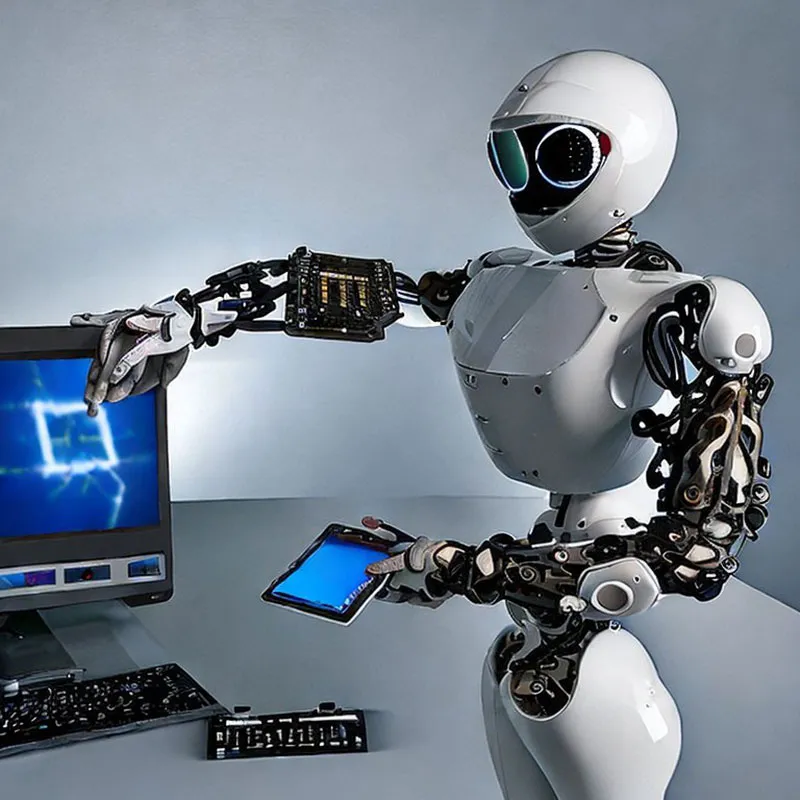
Artificial Intelligence (AI) and Machine Learning (ML) are two of the most transformative technologies of our time, reshaping industries and redefining how we interact with the digital world. From self-driving cars to personalized recommendations on streaming platforms, AI and ML are at the forefront of innovation. This article explores what these technologies are, how they work, their applications, and the ethical considerations they raise.
What is Artificial Intelligence?
Artificial Intelligence refers to the simulation of human intelligence processes by machines, particularly computer systems. These processes include learning, reasoning, problem-solving, perception, and language understanding. AI can be categorized into two main types:
- Narrow AI: This is designed to perform specific tasks, such as facial recognition or internet searches. Most AI systems in use today fall under this category.
- General AI: This refers to a theoretical form of AI that possesses the ability to understand, learn, and apply knowledge in a way comparable to a human. While still in the realm of research, General AI could revolutionize the future of technology.
What is Machine Learning?
Machine Learning is a subset of AI that focuses on the development of algorithms that enable computers to learn from and make predictions or decisions based on data. Instead of being explicitly programmed to perform a task, ML systems learn from experience. There are three primary types of machine learning:
- Supervised Learning: In this approach, the model is trained on labeled data, meaning the input comes with corresponding outputs. The system learns to map inputs to outputs, improving its accuracy over time.
- Unsupervised Learning: Here, the model works with unlabeled data and attempts to identify patterns or groupings within the data without specific guidance. This approach is often used for clustering and association tasks.
- Reinforcement Learning: In this model, an agent learns to make decisions by performing actions in an environment to maximize cumulative reward. This is commonly used in robotics, gaming, and navigation.
Applications of AI and ML
The impact of AI and ML can be seen across various sectors:
- Healthcare: AI algorithms analyze medical images, assist in diagnostics, and predict patient outcomes. Machine learning models are used for personalized medicine, enabling tailored treatment plans based on patient data.
- Finance: AI systems are employed for fraud detection, algorithmic trading, and risk management. Machine learning models analyze vast amounts of financial data to identify trends and inform investment strategies.
- Retail: AI-driven recommendations enhance the shopping experience by suggesting products based on consumer behavior. Retailers also use ML for inventory management, demand forecasting, and optimizing supply chains.
- Transportation: Self-driving cars rely on AI to navigate and make real-time decisions. AI systems in logistics optimize routing and delivery, improving efficiency in transportation networks.
- Marketing: AI tools analyze customer data to create targeted advertising campaigns, improving conversion rates and customer engagement. Predictive analytics help businesses understand consumer behavior and preferences.
Ethical Considerations
As AI and ML technologies become more pervasive, ethical considerations arise:
- Bias and Fairness: Machine learning models can inadvertently perpetuate bias if trained on biased data. Ensuring fairness in AI systems is crucial to prevent discrimination in decision-making.
- Privacy: The collection and analysis of vast amounts of personal data raise concerns about user privacy. Organizations must balance data utilization with the need to protect individual privacy rights.
- Job Displacement: Automation driven by AI could lead to job displacement in certain sectors. While new job opportunities will emerge, there is a pressing need for workforce retraining and support.
- Accountability: As AI systems make more decisions independently, determining accountability for errors or harmful outcomes becomes challenging. Clear frameworks must be established to address these concerns.
Conclusion
Artificial Intelligence and Machine Learning are revolutionizing industries and altering the fabric of everyday life. From improving healthcare outcomes to transforming business operations, their potential is vast. However, as we embrace these technologies, it’s vital to address the ethical implications they bring. Ensuring responsible development and deployment will be key to harnessing the benefits of AI and ML while minimizing risks. As these technologies continue to evolve, they will undoubtedly shape the future in profound ways.
